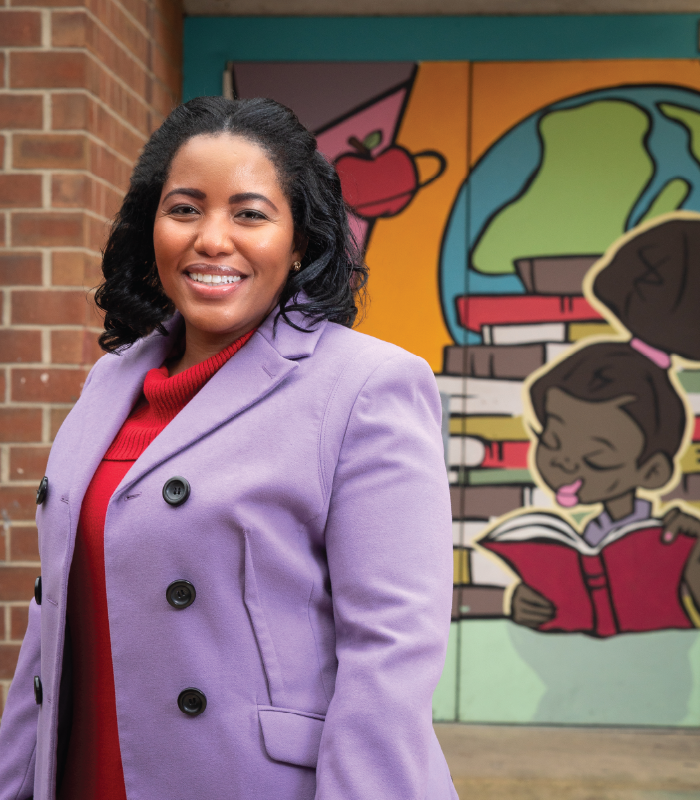Over the course of her career, Veronica Menefee taught students from Head Start to the college level.
Today, she is a special education consultant working with schools, community organizations, students and caregivers within the Baltimore Metropolitan area. Late last year, Menefee took time from her work—transformed, like all else, by COVID-19—to speak with Teaching Tolerance. We’ve edited this conversation for length and clarity.

What first sparked your interest in special education?
I had a cousin with special needs who ended up in the same high school with me. She was a year behind me. I could see classmates who didn’t realize that she and I were related—they would make fun of her and say all kinds of things. One day I just had to speak up.
I said, “You do realize we are related, and she’s no different than you or me? She just learns a little bit differently.” From that point on, I knew I needed to be in education. I didn’t know at that point that I was going to choose special education.
I started out in 2000 as an English teacher for high school. By 2016, I’d taught on every level from Head Start to college. Within these experiences, I was able to see how important special education is in terms of helping students achieve their greatest potential. There has to be a partnership between home and school that helps to shift perspectives, empowering parents—which ultimately benefits the students.
What do you wish people knew about special education?
I wish that people understood that special educators have added job requirements. Most of the time, you will work as a classroom teacher with a hefty caseload of students to monitor, with all of the meetings and responsibilities that already come with being a special educator.
You are responsible for doing the informal and formal testing, collaborating with the parents, speaking with the teachers at the school and helping structure the meetings.
Special education is not just about a document. There is a student whose name is on that paper who is a real person, and we are doing the best we can to give that child the services that are needed.
We want to give support. It might come in a 504, which provides lighter services than an IEP [Individualized Education Plan]. Students can also have instructional supports, and there can be conversations with teachers to facilitate what these will look like. It’s not that we want to give an IEP. That is always the last resort because intervention should be attempted within the classroom first.
It is important for everyone to understand that an IEP is a process. It starts with a parent, teacher or other school personnel expressing a concern. The next step is to do an informal meeting to see if all interventions have been put in place. The ultimate goal in education is to have all students succeed. And within special education, we want to give the student resources and support to thrive and be able to be taken off of the IEP.
My job is to clarify to parents what an IEP is and how it will benefit their student. I don’t want parents afraid of giving their child this additional help because of labels. As educators, we should be able to identify a struggling student early to provide needed assistance.
What do you love most about your job?
I love it all! I especially enjoy workshops where I can impart knowledge and assist the parents in finding the best ways to support their students and answer questions regarding special education that they were afraid to ask before. Many parents say afterwards, “Thank you so much; I didn’t know what was possible. I didn’t know I could do this and that there was help available.” Parents need advocates who are going to join them and equip them with the tools to empower their students. I make a difference by doing the workshops, hearing parent questions and then following up with answers and resources.
Demystifying the process is what I always set out to do before, during and after the IEP process. I like to see the calm come over the parents’ faces, especially those parents who didn’t know they had specific rights when it comes to special education. Special education students and their parents and guardians deserve equity within the educational environment, and it is my job to work with the team to make sure that happens.
Veronica Menefee is a special education consultant in Baltimore, Maryland. She is also a member of the Teaching Tolerance Advisory Board.
Know an excellent administrator, librarian or counselor we should interview?